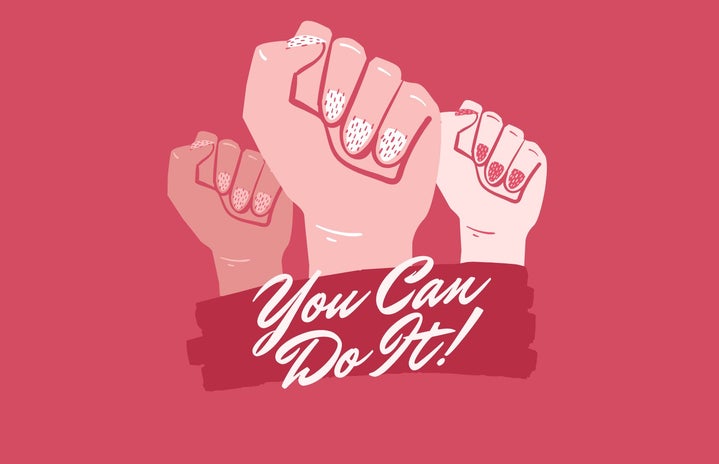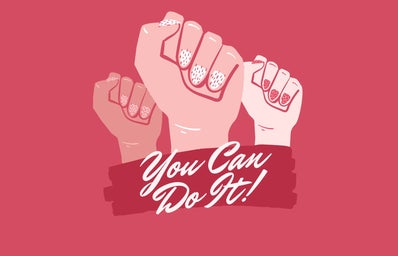In Conversation with Ria Kalsi
I was lucky enough to sit down and talk to Ria Kalsi (she/her) via video call. Ria is a third-year English student and the creator of Matriarch (@mtrrch), a blog and Instagram which she beautifully describes as “the positivity platform that strives to create change, empower and build human connection”. Ria’s platform is a place of honesty, education, and joyful humanity, reaching nearly 4,000 followers. I have already learned so much from her by simply following her on Instagram.
Matriarch seeks to “break social categories and end damaging labels surrounding race or gender” and on her Instagram Ria has created many clear, concise and comprehensible guides to complex ideas, discussing heteronormativity, racism, and practising anti-racism. Ria passionately described the importance of listening to other voices, particularly those which are marginalised, as she put it “listening to others is integral to change. The blog is a space in which Ria has been able to give other voices a platform: “When I started the blog, it was just my voice, it was personal, and so it only offered one niche perspective. As the blog grew, the interaction and engagement from my followers became one of a community of like-minded people who wanted to learn from each other and empower each other. So, I thought members of this community should write for the blog which became Matriarch Community where anyone and everyone can write about anything. The first post was from my friend who was working in a hospital during the hight of Covid, as these were the people we should be hearing from right now: people in the midst of it.” (Read Covid 19 by Kate Perret here). Since then Matriarch Community has released posts on female voice, eating and disordered eating, experiences of race, and many others. These posts offer perspective and insights to readers but also, Ria describes, “a catharsis for the writers”.
At a time when we may all feel disconnected, Ria (pictured below) described her aim to “connect people a little more […] in educating people I am learning myself. In creating educational resources conversations are starting and I hope these may continue in holding events and panels in future”. Ria’s enthusiasm for learning is as palpable as it is uplifting, “I love learning, I don’t think you can ever stop learning even if you are an ‘expert’ there is always more to learn”. In 2020 it appears distinctly important to open the mind to new ideas, and not claim to already know it all.

Ria and I discussed the recent shift in public discourse surrounding race, something her platform explores and explains. I asked Ria to expand on one post she made in which she critiqued the notion that racism was a “choice matter”, that even if you did not intend to be racist you cannot decide that your past actions were not racist. An important concept, but one which can be confusing for many, as we cling to our perceptions of ourselves as non-racist, and thus defensive of our intent. Ria explained, “I have had a lot of heated discussions surrounding this, so it is clearly an instant of me thinking my own perspective is clear. So, to be specific, stereotyping is a key example even if those stereotypes seem positive. Another example is silence. This can be a shock to people because it is inaction, and while people may say that racism wasn’t their intention, intentions aren’t always known. if you don’t make it clear where you stand it can do more damage than good. Silence is compliance, silence is passive.”
Ria has creative educational resources to define racism, and she expressed to me the importance of this, “it is the root of this ‘unintentional’ racism when definitions of racism don’t align. Racism is a societal issue; it is what the structures we live within were built on and so are perpetuated today through things like the wealth gap. And this is why re-education so important, so that people realise that they can use their privilege either to actively fight or feed racism. We may have tricked ourselves into thinking we are past racism, but the civil rights movement going on now proves that we are not.”
Ria was clear in noting that her experiences of racism differ from other people of colour, and that she herself holds Asian and wealth privilege, nonetheless we explored some of her own experiences of racism here in Exeter. “In town people would run past me when corona virus began to break out in the UK. There is always that nagging feeling of why are people looking at me? Something that has only just occurred to me recently is that perhaps I do go to university with people whose ancestors are the reason my ancestors had to leave India. It took me until now to think about this because our education system doesn’t help us to think this way, but once you do think about it its unnerving.” Speaking to Ria led me to consider how the wealth of privileged white families continues to be a pervading result of the British colonial past, and how we live in the wake of that, and have not escaped it. For Ria, full of generosity as always, she told me she has “taken this in [her] stride […] I try to use the fact that I am often singled out as the only person of colour or only woman of colour in the room to educate others and share my culture which I do love to do. But I cannot be expected to represent all people of colour, I can’t represent anything that isn’t me: I’m one religion and one culture. I feel a pressing need to make it known that I’m Sikh and Punjabi. Exeter is ‘exeternormative’ but I have this opportunity to diversify the university and bring culture and bring knowledge, which gives me strength at times when it can feel lonely.”
Online activism has recently seen a huge boost, and while there are undeniable benefits to this, Ria and I discussed the potential for Instagram posts to sacrifice nuance for briefness. “I feel I have found a good balance as I have both the Instagram and the blog, the Instagram is the subsection for the information, but you can only find the editorial on the blog. So, Instagram can be a starting point, it’s not the end stop for information”. As the conversation continued, we explored where Instagram activism may be performative or else not the method of activism some choose. “It was a great feeling when I saw my white friends sharing information, it made me feel like I had allies. I understand why there was a wave and lull, people didn’t have the excuse of being busy in the pandemic, and of course some things were performative. Posting the black square should have been with information, without information it was not helpful. But for now, just because people’s posts may have gone down doesn’t mean that the fight has ended, so follow the right people and be in control of your own feed.” On the @mtrrch Instagram Ria has made a resource for how to work BLM into your feed, simply by following #antiracism my feed is far more diverse and informative. Naturally, not everyone is on Instagram, or uses Instagram in the same way. “It doesn’t mean you’re racist if you’re not posting as long as you’re reading, educating, protesting, signing petitions. I just want to know that you’re doing something – but I don’t need it posted all over Instagram. Everyone has a platform to utilize especially if you have some form of privilege. But social media or voting are not the only way the use your power. It’s about exercising what you have learnt, writing, voting, acting when you see racism. Anti-racism is a theory that has to be practised. It’s not real-life vs. social media, it’s what would you do if you saw racist abuse.”
It is so important to keep others and yourself safe, so I asked Ria what she would want me to do if I witnessed an act of racism while with her. “If you could say something back that would be the best feeling, but there are situations where I haven’t spoken, and you might not be able to. I would want my ally to start a discussion with me afterwards, and white people to not shy away from talking to their friends about race.”
Ria’s recommendations:
Instagram accounts to follow
- Intersectional Environmentalist.com (@intersectionalenvironmentalist)
- @antiracismdaily
- @munroeburgdorf and @shaunking
- @bitter.blush
- @blackwomensdirectory
This list of brilliant organisations to donate/support: https://www.timeout.com/london/news/donate-to-these-anti-racism-charities-and-organisations-doing-amazing-work-in-london-060420


